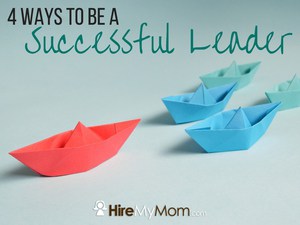Ensuring the Best Fit as a Job Seeker or Business Owner
Occasionally, both job seekers and employers jump into things a little too quickly — normally for similar reasons. Job seekers might be looking for a position as soon as possible, and employers are looking to fill empty spots as soon as possible. However, jumping on the very first thing that comes along for both parties can have some not-so-great consequences down the line. It is important that you find the right fit. There may be times where you’re just not certain whether or not a new position or employee is the best option, which is why it’s important to consider the following factors:
For Job Seekers, Identify Your Ideal Work Environment
When we say work environment, we aren’t talking about your home office setup. Instead, we mean that you need to consider what it is that makes a job great for you. Discovering your optimal remote work environment is a pivotal step in your job-seeking journey. Begin by reflecting on your work habits and preferences. Do you flourish with structured schedules, or are you seeking the flexibility to design your own day?
Evaluate your ideal level of interaction with colleagues: Do you prefer a tightly knit team dynamic, or are you more productive with minimal oversight? Assessing these elements enables you to target positions that complement your personal working style. Additionally, delve into the company’s remote culture by examining its communication tools, team engagement practices, and support for remote employees. Seeking feedback from current or former employees can also provide invaluable insights into the day-to-day realities of remote work within the organization.
Additionally, take time to write down a spectrum of how you view work, what are your favorite tasks and which ones are your least favorite that you never want to do again? This can also help refine your search to find something you enjoy doing. Keep in mind, you won’t absolutely love every aspect of your job. Maybe data entry isn’t your favorite, but you still have to enter your hours worked and what you did. As long as you love the other parts of your job, that can still be a good fit. It’s important to understand your work boundaries.
For Businesses, Craft the Perfect Job Description
How do you know what to look for in a job candidate? Start with the job description. It’s the first point of contact between your business and potential talent, making it essential to detail not just the role’s responsibilities but also the personality and skills ideal for your remote work culture. It also helps you focus your wants and needs.
Start by creating a list of everything your business needs help with. Separate these into categories — social media posts would fall under marketing, entering payables would fall under bookkeeping, and so on. From there, write down everything a person would do in a singular position; if you need someone to help with social media posts as a marketer, what do you expect them to do? Do they create a calendar? Create posts? Or do they just reply to comments? This might sound time consuming, but it’s important to define the role so you know what you want and you can communicate what you expect to potential candidates. Once you have the role defined, it’s time to put it all together in a job description.
Emphasize the soft skills crucial for remote efficiency — like self-motivation, time management, and digital communication proficiency. Be explicit about what remote work at your company entails, including expectations around availability, digital proficiency, and any specific tools or platforms used regularly. Illustrate your company’s ethos and how it translates into a remote setting to attract individuals who resonate with your values and work style. This clarity not only attracts applicants who are more likely to be a good fit but also sets the stage for a transparent and productive relationship from the outset. Remember, the goal is not just to fill a vacancy but to integrate a new member who will thrive and contribute to the collective success of a remote team.
The Interview Process: Going Beyond the Resume
The interview process is where both parties merge what they are looking for; this time is for both job seekers and employers to ask questions. It is a good idea for everyone to show up with a list of questions.
For job seekers, pull from the list you made of what you want to do in a position. Ask the company to paint a picture of what your day to day schedule will look like. Follow up on any vague areas in the job post that you noticed. Don’t be afraid to jump in at any point and ask questions. The more you know, the easier it will be for you to decide whether or not this position is a good fit for you.
For employers, arrive with a list of questions tailored to the specific candidate you are meeting with; ask them about past positions listed on their resume and follow up on areas in the cover letter that interested you. It’s always good to have a set framework of questions such as posing a particular issue your company has encountered and ask the candidates how they would tackle it. However, to best understand if this candidate will fit with your company, you need to make sure you’re asking them specific questions about their experiences.
Overall, the interview stage is a critical juncture where deeper insights into mutual compatibility emerge. For job seekers, this is your opportunity to illuminate your soft skills, demonstrate how you navigate challenges, and highlight your proficiency in a remote work setup. For businesses, the interview offers a window into a candidate’s adaptability, communication prowess, and ability to independently manage tasks. By prioritizing these interactions, both parties can gauge the potential for a successful and fulfilling professional relationship in a remote context.
Do you have tips to share on how to decide if something is a good fit for you? Share it with us and we will feature it in an upcoming blog!


